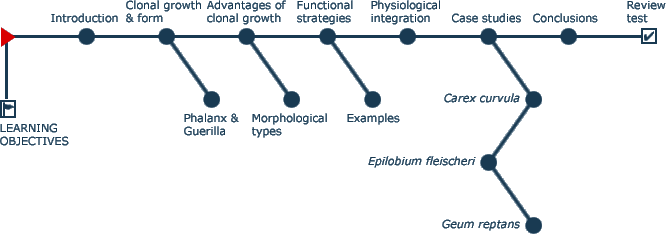|
Clonal growth strategies are abundant in alpine habitats.
Nevertheless, long-lived giant rosette plants with a single big bang
reproduction are common in tropical regions at high altitude. The complex
life cycle of clonal pioneer species will be used to illustrate the
diversity of clonal growth. The advantages of clonal growth include
a high persistence in time and space, physiological integration and
high tolerance to stress, spreading and foraging, as well as division
of labour among parts of a clone. Important trade-offs (sex vs. clones,
early vs. late flowering, persistence vs. dispersal), patterns of genetic
diversity and factors important for species distribution in a naturally
fragmented landscape will be explored.
|

